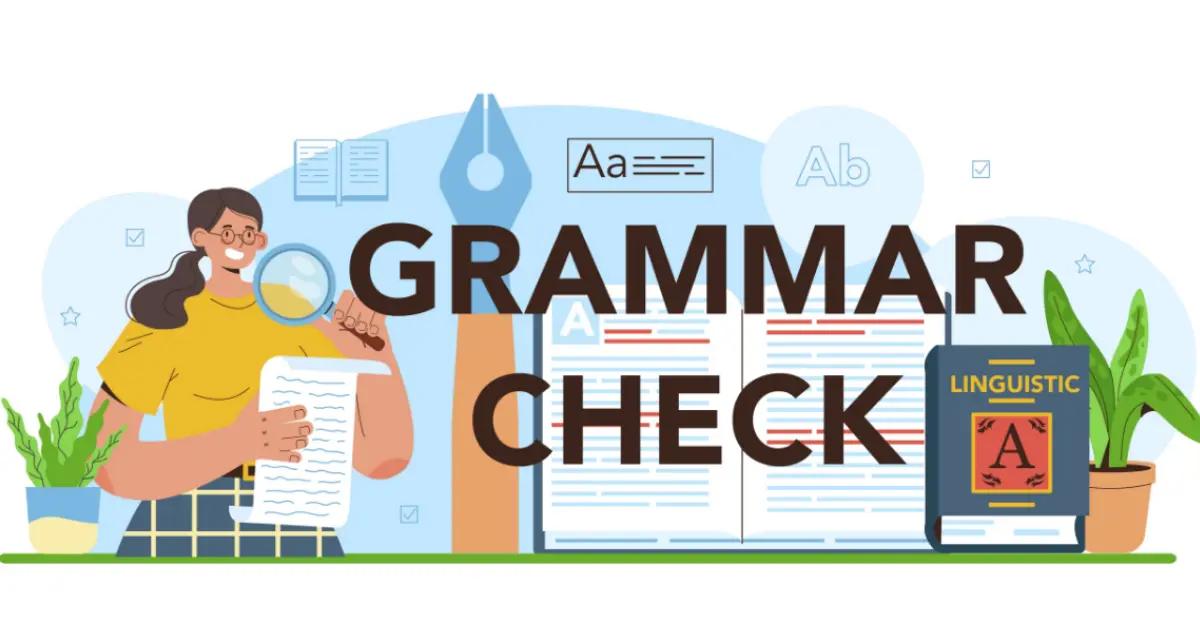When it comes to writing, there are many rules and conventions that we are expected to follow.
Grammar rules, in particular, can seem like an impenetrable maze of dos and don'ts, but the truth is that many of these rules are more like guidelines than hard and fast rules. There are some grammar rules that you can (and should) break.
ᴀᴅᴠᴇʀᴛɪsᴇᴍᴇɴᴛ
In this blog post, we'll examine eleven rules and explain why breaking them can help you become a better writer.

Rule #1: Never use a preposition to end a sentence
This rule has been drilled into many of us from a young age. The idea is that ending a sentence with a preposition is ungrammatical and should be avoided at all costs.
However, this rule is based on a misunderstanding of how English works. It is perfectly acceptable (and sometimes even preferable) to end a sentence with a preposition.
Example:
- “What are you waiting for?”
This is a perfectly acceptable sentence, despite ending with the preposition "for."
Breaking this rule can help you write more naturally and conversationally, allowing you to write in a way that sounds more like how people speak.
ᴀᴅᴠᴇʀᴛɪsᴇᴍᴇɴᴛ
Rule #2: Never use sentence fragments
Another rule that has been drilled into many of us is that sentences must always be complete and contain a subject and a verb. Minimal sentence fragments do make you're writing clearer.
While this is generally true, there are times when it is perfectly acceptable (and even preferable) to use sentence fragments.
Example:
- "Why did you do that? Because I wanted to."
This is a perfectly acceptable use of a sentence fragment, as it conveys the necessary information concisely and clearly.
Using sentence fragments can help you create a sense of rhythm and flow in your writing and can help you to create a more conversational tone.
Rule #3: Never use contractions in formal writing
This rule is often imposed on students when they are learning to write, but it is not necessarily a hard and fast rule.
While it is true that contractions are generally considered more informal than their full-form counterparts, there are times when using contractions can make your writing more effective.
Example:
- "I'm sorry, but I can't make it to the meeting."
This sentence uses contractions, but it still conveys a professional tone and is perfectly acceptable in a formal setting.
Using contractions can help you create a more conversational tone in your writing, which can be especially useful if you are writing for a non-academic audience.
Rule #4: Never use "they" as a singular pronoun
This rule is being challenged increasingly in modern English usage. Traditionally, "they" have been considered a plural pronoun, and using it to refer to a singular subject has been considered ungrammatical.
However, in recent years, many people have started using "they" as a gender-neutral singular pronoun, and this usage is becoming more accepted.
Example:
- "If someone is feeling overwhelmed, they should take a break."
This sentence uses "they" as a singular pronoun and is perfectly acceptable in modern English usage.
Using "they" as a singular pronoun can help you be more inclusive and respectful of different gender identities in your writing.
ᴀᴅᴠᴇʀᴛɪsᴇᴍᴇɴᴛ
Rule #5: Always use "who" instead of "that" to refer to a person
This rule is often taught in school, but it is not necessarily accurate. While "that" is generally used to refer to things, and "who" is generally used to refer to people, there are times when it is perfectly acceptable (and even preferable) to use "who" to refer to a person.
Example:
- "The woman who won the award was thrilled."
This sentence uses "who" to refer to a person and is perfectly acceptable in modern English usage.
Using "who" instead of "that" can help you create a more natural and conversational tone in your writing and can help you avoid the stilted and awkward phrasing that can result from following this rule too strictly.
Rule #6: Never use passive voice.
This rule is often repeated in writing advice, but it is not necessarily a hard and fast rule. While it is true that active voice is generally more direct and engaging than passive voice, there are times when using passive voice can be more effective.
Example:
- "The cake was baked by my grandmother."
This sentence uses the passive voice, but it still conveys the necessary information clearly and concisely.
Using passive voice can help you create a more formal and objective tone in your writing, which can be especially useful in academic writing or when discussing complex or sensitive topics.
Rule #7: Never start a sentence with "however"
This rule is often imposed on students in school, but it is not necessarily accurate. While starting a sentence with "however" can sometimes create a run-on sentence or a sentence fragment, there are times when using "however" at the beginning of a sentence can be effective.
Example:
- "However, we must also consider the potential risks associated with this approach."
This sentence uses "however" at the beginning of the sentence and is perfectly acceptable in modern English usage.
Using "however" at the beginning of a sentence can help you create a sense of contrast or opposition between different ideas, which can be helpful in persuasive writing or in making an argument.
ᴀᴅᴠᴇʀᴛɪsᴇᴍᴇɴᴛ
Rule #8: Never use slang or informal language in writing
This rule is often broken by writers who want to add personality and flavor to their writing. While formal writing should adhere to the rules of standard English, there are situations where using slang or informal language can be appropriate.
Example:
- I'm gonna go get some coffee.
While "I'm going to get some coffee" is the correct and formal way to express the idea, "I'm gonna go get some coffee" sounds more natural and relatable, especially in casual writing. In the right context, using slang or informal language can make your writing more engaging and enjoyable to read.
Rule #9: Use "less" instead of "fewer" with countable nouns
This is a rule that is commonly misused, even by native English speakers. "Fewer" should be used with countable nouns, while "less" should be used with uncountable nouns. However, in some situations, it may be appropriate to use "less" with countable nouns.
Example:
- I have less than ten minutes to get to the meeting.
While "I have fewer than ten minutes to get to the meeting" is technically correct, using "less" in this sentence sounds more natural and conversational. In casual writing or speech, it is not uncommon to hear people use "less" with countable nouns.
Rule #10: Always use "that" instead of "who" to refer to a person.
According to traditional grammar rules, "that" should refer to objects and animals, while "who" should refer to people.
However, this rule is often broken in modern English, and using "that" to refer to people is now widely accepted.
Example:
- The person that I saw on the street was wearing a red coat.
While "The person who I saw on the street was wearing a red coat" is technically correct, using "that" instead of "who" is perfectly acceptable in modern English.
Rule #11: Never split an infinitive.
An infinitive is the base form of a verb, such as "to be," "to go," or "to eat." According to traditional grammar rules, an infinitive should never be split by another word, such as an adverb.
For example, "to quickly run" is considered incorrect, and "to run quickly" should be used instead. However, this rule is often broken in modern English, and splitting infinitives is now widely accepted.
Example:
- He decided to boldly go where no man had gone before.
While "to go boldly" is technically correct, using "to boldly go" sounds more natural and is now widely accepted in modern English.
ᴀᴅᴠᴇʀᴛɪsᴇᴍᴇɴᴛ
Grammar Rules That Are Often Broken and Why?

There are several broken grammar rules by writers, despite being taught and emphasized in schools and writing classes. Some common rules frequently broken include
-
Split Infinitives: This rule prohibits placing an adverb between the infinitive form of a verb (to + verb). For example, "to boldly go" instead of "to go boldly." This rule was based on Latin grammar, where the infinitive form is one word, so it's impossible to split it.
However, in English, the infinitive form is two words, and placing an adverb between them can often sound more natural and emphasize the adverb.
-
Ending a sentence with a preposition: The rule against ending a sentence with a preposition is another commonly broken grammar rule. For example, "What are you waiting for?" instead of "For what are you waiting?"
While it is true that some sentences can be rewritten to avoid ending with a preposition, trying to do so can lead to awkward and unnatural-sounding sentences.
-
Use of "they" as a singular pronoun: Traditionally, "he" or "she" is used as the singular pronoun when referring to a person of unspecified gender. However, there has been a shift towards using "they" as a gender-neutral pronoun in recent years.
While some still consider this usage grammatically incorrect, it is gaining acceptance in modern English.
-
Use of passive voice: Passive voice is often used when the writer wants to emphasize the action rather than the actor. However, overusing the passive voice can make writing sound dull and impersonal. Active voice is generally preferred as it is more direct and engaging.
-
Starting a sentence with "however": This is a rule that many writers are taught, but few understand why. However, when used correctly, starting a sentence with "however" can add emphasis and make writing more impactful.
How Copychecker Tool Can Help you write better content
Copychecker grammar checker tool can automatically detect and correct errors in your writing. Such tools have become increasingly popular in recent years, as they can help writers produce error-free content quickly and efficiently.
Here are some ways the copychecker tool can help you write better content:

-
Identifying grammatical errors: Copychecker's grammar checker can help you identify and correct grammar mistakes, such as subject-verb agreement errors, incorrect use of punctuation, and misspelled words. This ensures that your writing is clear, concise, and error-free.
-
Improving sentence structure: It can help you identify and correct awkward and unclear sentences. Suggestions for rephrasing can help you write more coherent and effective sentences.
-
Enhancing readability: It can also analyze the readability of your writing by evaluating factors such as sentence length, word choice, and complexity. It can provide suggestions for simplifying your writing and making it more accessible to your target audience.
-
Saving time: Using the copychecker tool can save you a significant amount of time when editing and proofreading your writing. Rather than manually checking for errors, you can quickly and easily identify and correct mistakes with the click of a button.
Why Choose Copychecker Tool

Now that you know how the copychecker grammar checker tool can help you write better content, let's explore why you should choose one.
-
Saves Time and Effort: It can help you save time and effort by automatically checking your content for grammar and spelling errors. This means you can focus on creating content and not worry about making mistakes.
-
Improves Writing Skills: Our tool can help you spot errors and make your writting better. Whether you're writing a creative farewell message to your colleagues, or a blog post, it can catch mistakes and improve your writing skills.
-
Enhances Credibility: If you're writing for a professional audience or submitting your work for publication, using a copychecker can help enhance your credibility by ensuring that your writing is error-free and polished.
-
Customizable Settings: It allows you to customize the settings to suit your needs. For example, you can choose to ignore certain types of errors or adjust the level of correction based on your proficiency level.
-
Free to Use: The copychecker tools are completely free of cost.
FAQs
How can breaking grammar rules enhance my writing?
Breaking grammar rules can enhance your writing by allowing you to create a unique voice and style that engages readers. When used appropriately, breaking grammar rules can add emphasis, create a conversational tone, and make your writing more relatable.
Are grammar checker tools reliable?
Most grammar checker tools are reliable, but it's important to note that they are not perfect. While they can identify and correct most grammar and spelling errors, they may only catch some errors or provide feedback on their writing style.
Do grammar checker tools provide feedback on writing style?
Some grammar checker tools do provide feedback on writing style, but this varies depending on the tool. Some tools offer suggestions for improving readability, while others provide feedback on sentence structure or word choice.
Can grammar checker tools be used for non-English languages?
Yes, many grammar checker tools offer support for non-English languages. However, it's important to note that the level of support and accuracy may vary depending on the language and the tool being used. It's always a good idea to check the tool's capabilities before using it for non-English content.
ᴀᴅᴠᴇʀᴛɪsᴇᴍᴇɴᴛ
Conclusion
In conclusion, grammar rules are important for effective communication, but there are times when breaking them can improve your writing. By understanding which grammar rules can be broken and why, you can create more engaging and impactful content.
Using a grammar checker tool can help you identify and correct grammar and spelling errors while also improving your writing skills and enhancing your credibility.
By choosing the right grammar checker tool for your needs, you can save time and effort, customize the settings to suit your preferences, and create error-free content that truly stands out.






